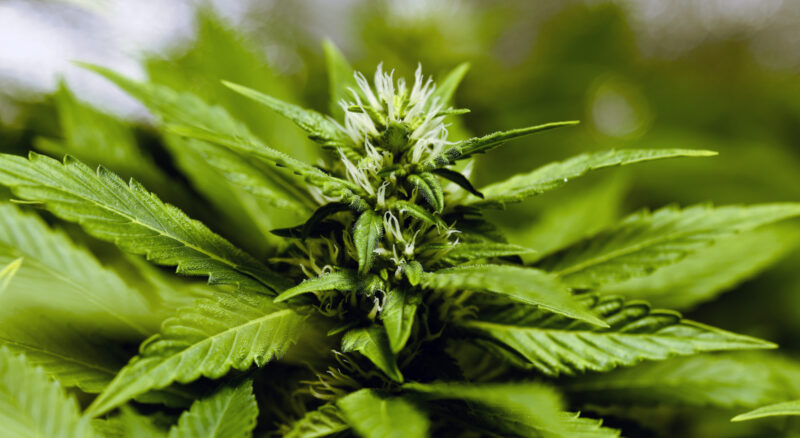Delta 8 THC: What’s All the Buzz About?
Have you heard the news? There’s a new kind of weed in town, and it just might steal the spotlight from our old favorite THC.
Delta 8 THC, referred to by most as just Delta 8, is currently taking the cannabinoid market by storm by providing a lighter, more palatable alternative to the traditional ganja we all know and love.
While some habitual cannabis users see Delta 8 as nothing more than a weaker version of THC, others appreciate the milder high and fewer side effects it produces.
Many think that Delta 8 could become an accessible entry point into the world of cannabis for those who are hesitant about the reaction they will have to THC, following in the footsteps of CBD products that uplifted the image of the cannabis industry in the eyes of the general public.
But where exactly did this ‘new weed’ come from? What is it exactly? And, most importantly, is it legal? We’ve answered these questions and many more in the article below, so read on to find out everything there is to know about Delta 8.
What Is Delta 8 THC & Is It Legal?
Delta-8-Tetrahydrocannabinol, otherwise known as Delta 8 THC, is one of many cannabinoid compounds that exist inside of the cannabis plant.
Compared to its well-known older brother Delta-9-Tetrahydrocannabinol (the compound people refer to when they say THC) and other major cannabinoid types like CBD, Delta 8 occurs in relatively small amounts. It may also be produced by the degradation of normal THC as it is stored for extended periods.
The buzz around Delta 8 comes from its uncertain position in terms of legality. Delta 8 may be sold and consumed legally in states where THC is not legal in some states due to its ability to derive from both hemp and cannabis.
While cannabis is strictly regulated, hemp and products derived from it are legally protected under a 2018 federal law called The Farm Bill. So people who live in states who don’t permit the growing and sale of cannabis products create a high demand for Delta 8, despite it being far less potent than its Delta 9 counterpart.
To meet this demand, extractors around the country are rapidly increasing the production of Delta 8 products extracted from hemp CBD and shipping it to their customers everywhere except these states:
- Alaska
- Arizona
- Arkansas
- Colorado
- Delaware
- Idaho
- Iowa
- Mississippi
- Montana
- New York
- Rhode Island
- Utah
However, the federal legality of Delta 8 may not last for much longer. An August 2020 document released by the DEA called The Interim Final Rule clarified the language of the 2018 Farm Bill to consider all synthetically derived tetrahydrocannabinols as Schedule I controlled substances. Were this rule to go into effect, Delta 8 would become just as illegal as normal THC.
What Are Its Effects?
The effects of Delta 8 are similar to those of THC, albeit less pronounced. Users report feelings of euphoria, happiness, and the relief of symptoms when under the influence of both Delta 8 and THC. But whereas THC comes with a host of side effects including anxiety and paranoia, these effects are greatly diminished or non-existent with Delta 8 due to its lower potency.
This difference in effect is caused by a slight variation between the chemical structure of Delta 8 and THC. THC (Delta 9) has a set of double bonds on its 9th carbon chain while Delta 8 contains that bond on the 8th carbon chain.
Down the line when the molecules make it to the chemical receptors in your brain responsible for binding cannabinoid compounds, that subtle difference translates into a big difference in terms of psychoactivity. Delta 9 produces extreme psychoactivity, while Delta 8 produces a more measured effect.
That being said, Delta 8 is almost indistinguishable from THC when ingested in edible form. Both substances make their way to the liver, where they are converted into another compound called 11-hydroxy-tetrahydrocannabinol that produces potent psychoactive effects.
Therefore, it is important to carefully consider whether consuming Delta 8 is right for you and the amount of Delta 8 you consume if you choose to do so.
In terms of medical effects, a few research studies and anecdotal reports have suggested that Delta 8 may aid in the suppression and management of these conditions:
- Anxiety: Anecdotal reports suggest that the high induced by Delta 8 is calming and mellow in nature, which helps to alleviate intense feelings of anxiousness and stress
- Nausea: A 1995 research study that followed 8 cancer patients for two years found that during the period before and 24 hours after cancer treatment, no vomiting occurred in patients who ingested a small dose of Delta 8
- Pain & Inflammation: A 2018 pre-clinical study performed in mice found that, when applied topically on the skin, Delta 8 reduced inflammation and assisted in pain reduction due to its effect on the CB1 receptor
- Loss of Appetite: A 2004 study also performed in mice found that delta 8 produced a 22% increase in food intake over 50 days, a significant jump from the effect of Delta 9 on food intake
Although similar to the medicinal benefits to THC, the two significant differences which could drive one to prefer Delta 8 over THC are that it is more available and has the same benefits for fewer side effects.
How Does Delta 8 Compare To Other Popular Cannabinoid Types?
Delta 8 vs CBD
A well-known compound second only to THC in terms of popularity, cannabidiol or CBD is a compound found in both marijuana and hemp whose anti-inflammatory and anxiety-easing properties have spurred a billion-dollar industry.
Despite having similar medicinal properties, CBD differs from Delta 8 in that it does not bind to the CB1 receptor and thus has no psychoactive component. CBD and its products are also legal for use in every state, whereas Delta 8’s legality is contested.
Another way in which CBD and Delta 8 are similar is in their ability to soften the image of the cannabis industry to otherwise hostile audiences. They are essentially perfect ambassadors, having many benefits with little to no drawbacks. Eventually, we might look back and see that these two compounds were responsible for the embrace of the cannabis industry by the world.
Delta 8 vs CBN
CBN, or Cannabinol, is a compound that results when THC is oxidized. It is best known and used for its effect on sleep, among other properties. When compared to Delta 8, both substances have mild psychoactive effects, but nothing compared to the likes of THC.
However, preliminary research suggests that CBN may not be so effective in isolation from other cannabinoids. This differs from Delta 8, which produces a mild effect regardless of the presence of similar compounds.
In terms of legality, CBN falls under the same ruling that currently protects Delta 8 due to it also being divided from hemp. However, were the ruling to change as a result of the aforementioned Interim Final Rule, CBN would remain legal while Delta 8 would not.
Delta 8 vs CBG
Cannabigerol or CBG is often called the mother of all cannabinoids. This is because the compound is the parent molecule from which all other cannabinoids, including THC, Delta 8, CBD, etc., are synthesized. Like Delta 8, CBG interacts with the cannabinoid receptors in the brain.
But instead of producing the mild psychoactivity characteristic of Delta 8, CBG acts as a buffer, blocking the receptor from further stimulation. Outside of being non-psychoactive, CBG’s other properties are similar to Delta 8, particularly in its ability to ease anxiety.
Is Delta 8 Safe?
Generally speaking, Delta 8 is safe to consume. With its milder psychoactive effect, it is probably a better starting point than THC for those new to the world of cannabinoids. On the other hand, it is important to keep in mind that Delta 8 has comparatively little research done about its effects.
And the research that has been conducted was almost entirely performed on animal test subjects. Scientists have barely scratched the surface of this compound’s potential use cases and side effects. Therefore, exercise caution before you decide to take Delta 8.
In particular, pay careful attention to the dose amount when partaking in Delta 8 or any drug for that matter. Although the effect of Delta 8 is moderate for experienced users when compared to THC, new users may still feel a powerful reaction. Also, everyone’s body chemistry is unique, so exactly how your body will respond to Delta 8 may differ from others.
Below is a brief guide to the proper dosage of Delta 8 edibles:
- Manufacturers of Delta 8 gummies commonly dose them at twice the strength of THC gummies due to Delta 8 being roughly half as potent as THC
- Thus, Delta 8 gummies are usually sold in doses of 25mg each, with THC gummies sold in 10mg doses
- If you have little to no experience with cannabis products and/or don’t know your body’s response well enough yet, it is highly recommended that you ease into edible consumption by eating only a piece of a gummy
- As you become more experienced, slowly ramp up your dosage accordingly. Move from a piece, to a half, to a full gummy, and so on
One other thing to watch out for are products that present themselves as Delta 8 without providing any information about their source or testing methodology. Delta 8 products are relatively new, and regulations have not caught up to their industry. So a variety of harmful, nefarious actors could exist in the market whose aim is to trick unassuming newcomers into buying bogus products.
To avoid buying unsafe products, ensure that whatever you’re looking at has some kind of a batch number or QR code associated with it. That way, you can look up information on the producer’s website about the products’ test results and sources. Also, even if a producer showcases test results for its product, give it a look over to check for any dangerous substances that may be present alongside the Delta 8.
Where Can I Find Some?
Depending on your state, procuring Delta 8 products can range in difficulty from easy to outright impossible. Thus, before buying, it is a good idea to check your state’s laws on the matter and carefully consider whether pursuing Delta 8 is worth the potential consequences of obtaining it. To be clear though, don’t do anything illegal. Obtaining a drug is never worth the impact of being on the wrong side of the law.
If you’re one of the lucky few who lives in states where Delta 8 is legal or a state with no or ambiguous laws about it, then the easiest way to procure the substance is through an online producer.
There are many reputable online producers that not only sell Delta 8 and other cannabinoid products but also provide free educational resources that facilitate understanding of the cannabis industry. You can find one such producer here!
After searching around and verifying to the best of your ability that the product and the producer you wish to buy it from is safe and can be trusted, have your Delta 8 shipped straight to your doorstep.
Alternatively, if online shopping does not suit you, you may be able to procure Delta 8 products locally. Call around to local smoke shops or cannabis companies and inquire about their selection of Delta 8 products. If you’re lucky, they may have some in stock for you.
When you finally have your hands on your product, refer back to the section on safety and proper dosing before trying it out for yourself. And if possible, try it with a group of friends that you trust could support you in case something goes wrong. Especially if you are new to cannabinoids. More experienced people could act according to their discretion.
Ready To Try Delta 8 For Yourself? Here Are The Next Steps
Whether you’ve finished this article with a burning desire to try Delta 8 THC, with a bad impression of the substance, or just with more questions, one thing is certain. There is far more for us to learn about Delta 8, THC, and all other cannabis products, both in terms of scientific research and personal experiences. And gaining that greater understanding will open the possibility of better, safer experiences for everyone who chooses to partake.
With that being said, consider taking a look at our other articles about the cannabis industry or other topics for more helpful guides like these.


